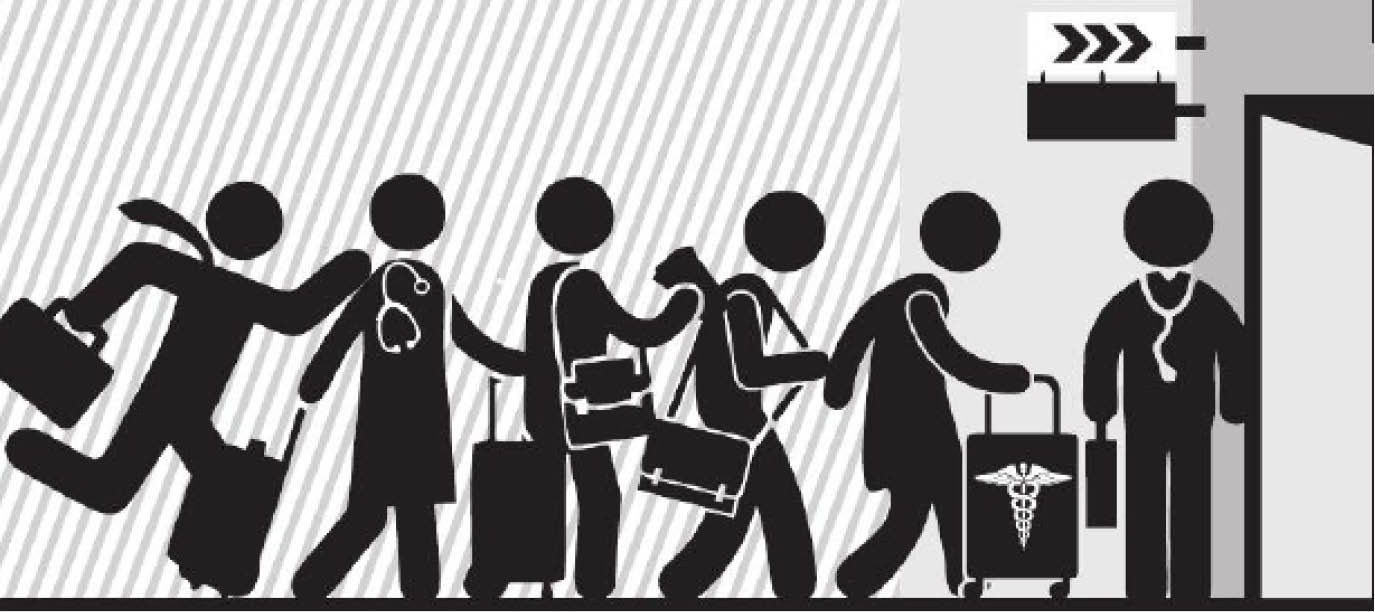The Medical and Dental Consultants Association of Nigeria (MDCAN) has revealed that about 500 consultants in various medical fields have gone abroad in the last two years.
Speaking at MDCAN’s Annual General Meeting in Benin, Edo State capital, on Sunday, the association’s President, Dr Victor Makanjuola, blamed the problems in the nation’s health sector on unresolved issues by the government.
Supreme Court jugdes drop to 13 as Justice Aboki retires
Anambra Police nab 4 armed robbery suspects, recover guns, others
He said, “In the last two years, over 500 consultants in estimation have left the services of government hospitals for practice abroad. All our government hospitals are consultant-led practices, which is the global standard. Now, we lose 500 in just two years and we have found out that those who are more likely to leave are younger ones.
“To sustain the system and be able to train the next generation of medical doctors and medical students, Nigeria needs to retain the older consultants who are in their 50s and getting close to their retirement so that they can stay back and train the next generation of doctors and medical students. Otherwise, the disaster for brain drain would be double because we would lose the younger ones and the older ones at about the same time, and you find a system without consultants. This would affect the standard of care and the quality of care given by hospitals”.
Makanjuola said to address the brain drain, government ought to increase the retirement age for consultants from the current 60 years to 70 years.
He added that government could also tap into medical entrepreneurship, which is a gold deposit yet to be substantially mined by stakeholders.
According to him, tapping into medical entrepreneurship has the potential to reverse brain drain and attract inward brain gain.
Speaking further, Makanjuola lamented the inadequacies of the government in addressing the challenges in the health sector, saying the government’s failure to implement hazard allowance is an apparent intention to engender disruption of services in secondary and tertiary health institutions across the country.
“The government should implement the payment of the approved Hazard Allowance, pay outstanding arrears occasioned by skipping, extend the retirement age of health workers to limit the ongoing massive brain drain in the health sector, as well as correct the shortfall in the salaries of honorary consultants who are clinical lecturers in the University,” he noted.
Makanjuola stated that the government refused to address the challenges, despite repeated negotiations and pledges to resolve the issues.
He added that the union could not guarantee industrial harmony in government hospitals if the demands were not met within the next two weeks, while calling on well-meaning Nigerians to intervene in order to avert impending crisis.

 Join Daily Trust WhatsApp Community For Quick Access To News and Happenings Around You.
Join Daily Trust WhatsApp Community For Quick Access To News and Happenings Around You.


